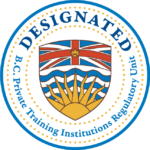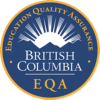
One of the most daunting aspects of indie filmmaking is casting. You might have a great script and crew – but your cast will make or break your film.
A casting director acts as a bridge between actor and director, and their expertise should not be underestimated. But you don’t have a budget for one. Now what?
Actors need to work with the character’s raw material. This can include the script sample (sides) that the actor performs during the audition, character bios, and story synopses if available. A well-prepared actor will absorb this information resulting in an informed and truthful performance.
Remember that when a director assumes the role of casting director, it’s important to create an environment where the actor can flourish. You are a facilitator and collaborator not a gatekeeper; enable their full potential rather than intimidate.
Choosing The Scene
Choosing an audition scene is a key decision. It should be a high stakes, dialogue driven, one-on-one interaction. Actors love tension because it gives them the best opportunity to showcase their abilities.
Dialogue is the easiest way to observe the choices the actor is making. Action-based scenes are harder to manage without a set and camera movement. One-on-one moments or monologues allow the character to be the point of focus.
The Setup
A simple setup is best – use a single camera on a tripod to capture the audition. Make sure the actor knows how the shot is framed so they can freely use movement without worrying about being out of frame.
If you already have an actor cast, use them as your reader. If not, the writer or producer will work. Just be sure the reader you do choose is sitting out of frame. It’s also important that your reader has an understanding of the script and context of the scene being read. The director should be solely focused on observing performances.
On audition day, your preparation will pay off. When the actor enters, introduce yourself and ask if they have any questions. Show them their mark, have them slate (say their name and role they’re reading for) into the camera and let the audition begin!
The Audition: Expect The Unexpected
This is where it starts to get interesting…
Why are they playing this character with a lisp?
This character would never be that harsh!
And really…do they need to be doing a headstand?
Directors often experience moments of terror when actors make unexpected choices. While it may look like the actor is just trying to stand out, any choices they make are ones they believe in.
Greet seemingly odd choices with an open mind. They give you the chance to gauge the actor’s range and ability to take direction. If a character is being played too harshly, see how they adjust to a request for a tender approach. Explain why the character would act in this way so the actor can rationalize the adjustment. Then run the scene again.
If you want to dig deeper with a promising actor or if you’re on the fence, a great exercise to try is interviewing or just chatting with the actor ‘in character’. Actors who have come prepared will relish the opportunity to explore their character. Improv exercises like this can be as valuable a tool as the scene being read.
We’ve only touched on a few aspects of casting. If you give actors the best opportunity to demonstrate their abilities and inform your vision for the film, you’ve made the most of the casting process.





